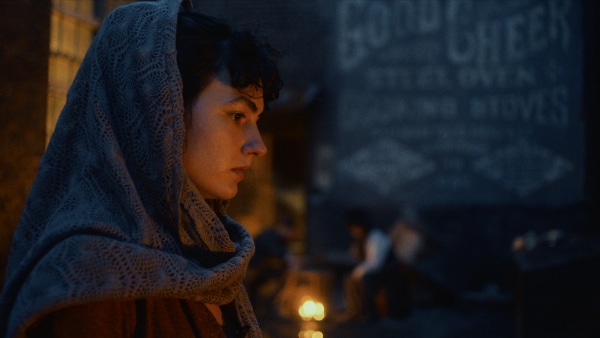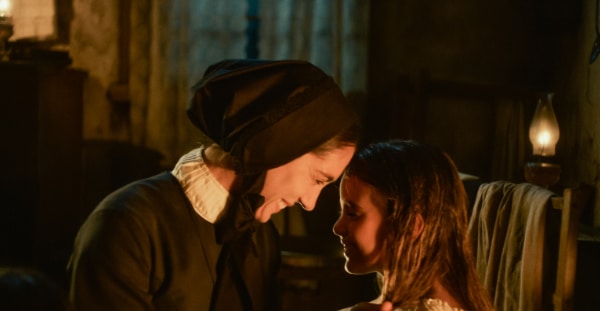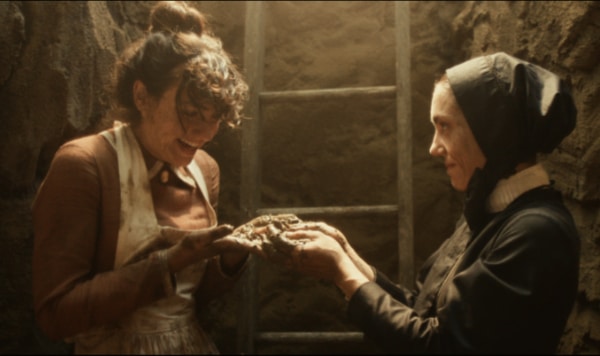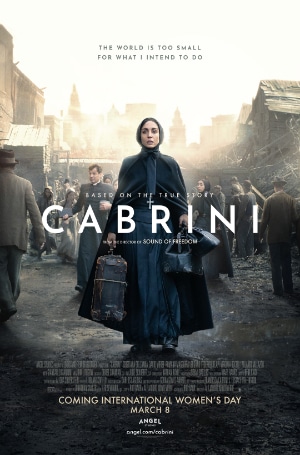Cabrini, set to hit theaters on March 8, International Woman’s Day, brings to the big screen the incredible true story of Saint Frances Xavier Cabrini, the first American citizen to be canonized a saint.
Directed by Sound of Freedom director Alejandro Monteverde, Cabrini celebrates the life of this amazing woman at a time when her mission couldn’t be timelier given the continuing tension regarding U.S. immigration policy, especially as it affects those crossing at the southern border of the United States.
Monteverde makes the distinction, though, that Mother Cabrini, played in the film by Christiana Dell’Anna, is not the patron saint of immigration but of immigrants, bringing to the forefront the inherent dignity of every human person, loved by God, even the foreigners who seeks a better life in a land not their own.
Always sickly, Mother Cabrini is relentless in her efforts to obtain Church approval to take her sisters to China to begin an orphanage. Turned down repeatedly by Vatican officials, she goes directly to the Pope (Giancarlo Giannini) who gives her permission to start an orphanage as long as she is willing to go to America instead of China, and minister to the children of Italian immigrants there. She and her sisters set out.
Their welcome in New York is nonexistent, so, tired and exhausted from their sea voyage, they slowly make their own way on foot to Five Points, one of the most violent areas of New York City, where many Italian immigrants live. Vittoria (Romana Maggiora Vergano), a prostitute they meet along the way, sneaks them into her own quarters under the nose of her pimp, Geno (Giacomo Rocchini).

When they meet with Father Morelli (Giampiero Judica), who was supposed to have met them at the docks, he tells them that a letter had been sent saying they were not to come. Thus begins Cabrini’s fight to first, stay in America, and second, begin her proposed orphanage.
She’s met with opposition at every turn, first by Archbishop Corrigan (David Morse) and then by various city officials, including the Mayor of New York (John Lithgow). Her first orphanage is quickly outgrown and she looks for other suitable property. Since Corrigan has forbidden her to seek funding outside the Italian community, her options are limited.
Cabrini’s tenacity finds outlets at every turn. When it dawns on her that “the rats have it better than the children of Five Points,” she has recourse to a sympathetic journalist at the New York Times, Theodore Calloway (Jeremy Bobb). His article spurs the genteel folk of New York to be more open to what Cabrini and her Sisters are doing for the immigrants. But not for long.

Despite the overwhelming opposition, Mother Cabrini’s work begins to take effect and soon, she’s being asked by her friend, Doctor Murphy (Patrick “Patch” Darragh), to open hospitals as well as orphanages, since there are so many immigrants to care for. This need takes her back to Italy to beg the Holy Father and the Italian Senate for funding. Her speech before the Senate, a place where no woman has spoken, highlights every person’s responsibility to take care of the poor, to do what is needed for those who have been stripped of their dignity.
A hope of mine is that by seeing Cabrini many people will want to know more about her life and her work, which still happens today, and especially about her faith in God. While the ending of the film describes Saint Frances Cabrini as one of the “great entrepreneurs of her time,” right up there with people like the Rockefellers, the movie fails in one important aspect: showing Cabrini’s faith.

In his desire for the film to have a universal appeal no matter the faith of the audience, director Monteverde, a Catholic himself, has, unfortunately, stripped the story of the faith element. In an interview with the National Catholic Register, he says, “this was a movie about a woman that happened to be a nun, and she happened to be the first American saint.” I disagree. Cabrini did what she did precisely because she was a nun and called by God to care for God’s children.
It would have only taken one or two scenes in the film to show that Cabrini’s faith in God was what gave her the strength and determination to keep fighting for her mission. A quote from the saint, from the website of the Cabrini Shrine in New York, says, “God has done it all. I have only been a spectator of God’s work.” When she describes her mission she says, “As I see it, the mission is this: loving other human beings—wherever they are in the world and letting them know that there is a God who loves them unconditionally, now, as they are.” These sentiments, so foundational to who Mother Cabrini was, are absent from this otherwise phenomenal film.
Yes, Mother Cabrini founded the “empire of hope,” one of the largest charitable networks in the world run by women. It wasn’t just because she saw a need and wanted to fulfill it, although she did. It was her open heart, listening to God’s voice and following God’s will that drove her to do this work for God’s glory and not her own.
For more information about the film, please go to their website: www.cabrinifilm.com.



